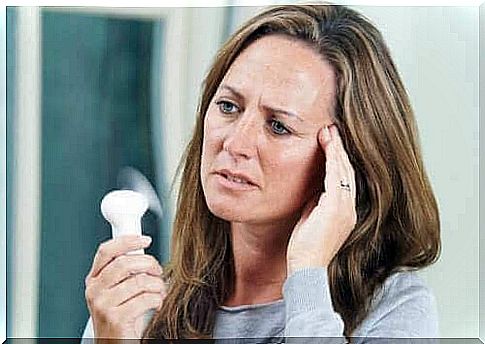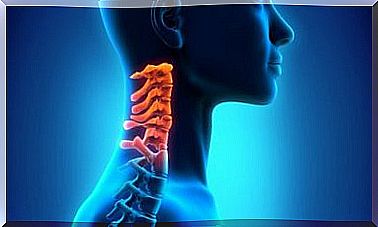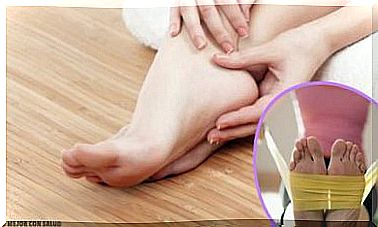Early Menopause Increases The Risk Of Dementia

The risk of dementia has always been associated with degenerative or infectious diseases or head trauma. Today, however, early menopause is also included in this group.
Many women fear the onset of menopause. This is not only because it is the end of their reproductive life, but because of the consequences of this new phase, such as the risk of osteoporosis. Normally this stage starts around age 45. However, in some cases it starts earlier.
Early or premature menopause

Early or premature menopause occurs before age 40. This can be due to several factors, such as:
- Family history. If someone in your family has experienced early menopause, you are much more likely to experience it.
- Treatments for cancer. Undergoing chemotherapy to treat cancer, especially in the pelvic area, can cause early menopause.
- Autoimmune disease. Thyroid disorders are associated with early menopause.
When menopause occurs, the body’s estrogen levels decrease. This causes the symptoms that are characteristic of this phase, such as bone problems. However, women can also suffer from high blood pressure and other problems, as a Mayo clinic article noted recently.
The risk of dementia in menopause
So what is the relationship between early menopause and dementia risk? Several studies suggest that the risk is due to decreased estrogen levels. This causes the brain’s estrogen receptors to disappear and the risk of dementia increases.
Decreased estrogen levels are responsible for all the symptoms associated with menopause and the underlying problems. For this reason, health care providers are exploring ways to prevent this.
Taking Estrogen

Researchers interested in this problem that affects women with early menopause believe that taking estrogen may be helpful. This is more commonly known as ‘hormonal replacement therapy’.
This type of therapy is used not only to prevent the risk of dementia but also to avoid all the uncomfortable symptoms associated with this stage of life such as:
- hot flashes
- night sweats
- vaginal dryness
Estrogen is usually taken in the form of birth control pills, which improve symptoms and prevent the risk of dementia. However, your doctor should determine if this is an appropriate treatment for you and how to take it.
Taking estrogen orally can reduce the symptoms associated with the onset of early menopause.
The risk of getting dementia
The best part about starting this hormone replacement therapy for early menopause is that it can also reduce the risk of a disease, which is difficult to diagnose early.
Dementia is a disease that is constantly evolving. This means that it is a degenerative problem that will try to run its course. However, proper treatment can slow this process down and thus improve patients’ quality of life.
The fragile brain
As you have seen, the brain is extremely fragile. Menopause, a condition that most people think only causes hot flashes and emotional changes, is actually much more than that.
Your body and health change when you enter menopause. Your bones weaken and you are also at an increased risk of dementia, especially if you have early menopause.
It is therefore important to put yourself in the hands of a trusted doctor and talk to him or her about the possibility of hormone replacement therapy. The doctor can discuss the situation of this new phase with you and explain it to you.
Conclusion
We hope this article helped you understand that there are ways to slow down this type of degenerative disease. While early menopause doesn’t always lead to dementia, it does increase the risk.









